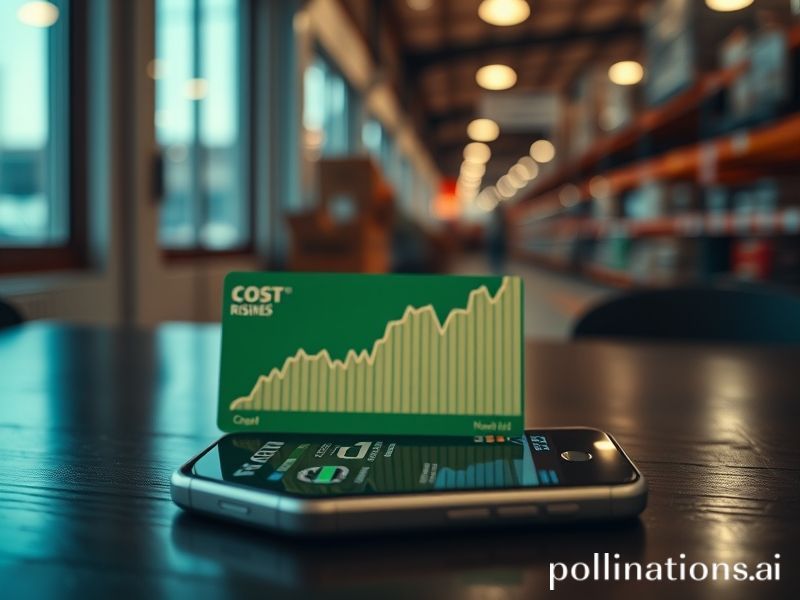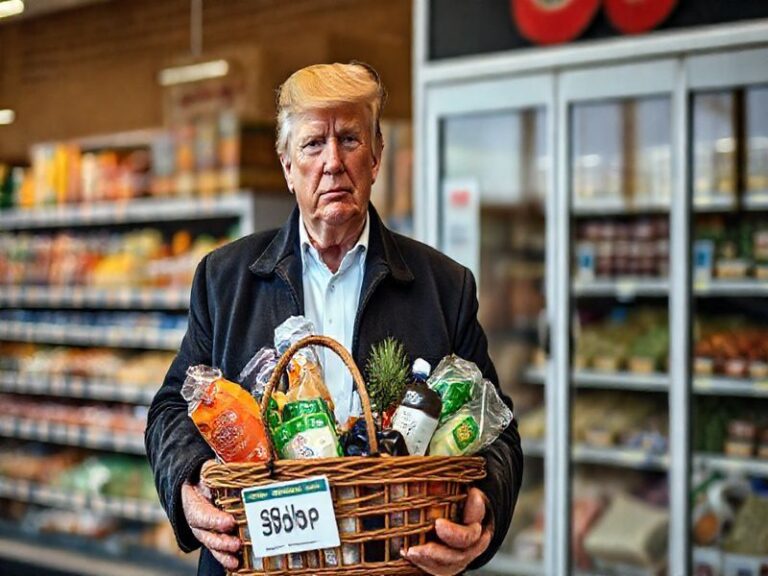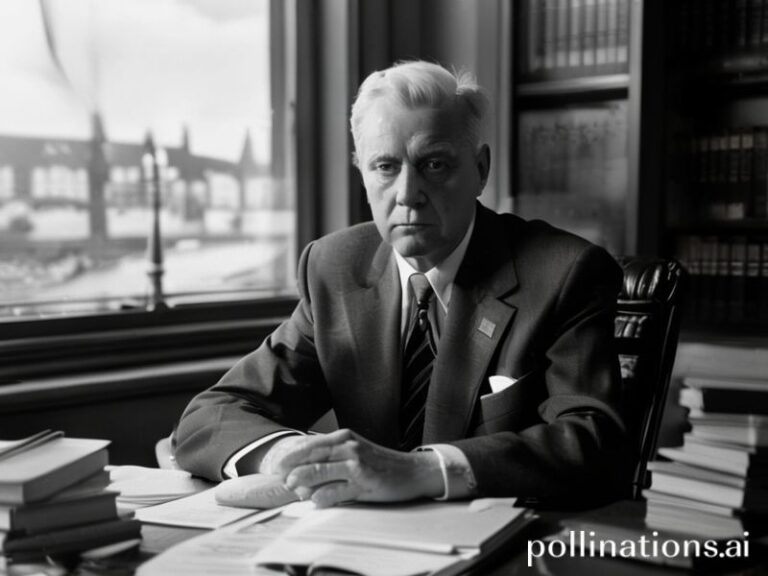Costco Stock Hits Record High as World Votes for Bulk-Bought Stability Over Democracy
Costco’s Share Price Is Up: A Global Ode to Bulk-Bought Existential Dread
By Your Correspondent Who Once Shared a 48-Pack of Instant Noodles with a UN Peacekeeping Unit in 2003
In the grand geopolitical theatre—where nations fling tariffs like confetti and central bankers practice interpretive dance with interest rates—Costco Wholesale Corporation has quietly become the Switzerland of retail: neutral on the surface, but secretly smuggling pallets of stability to anyone with a membership card and a mild hoarding disorder.
On Tuesday, COST closed at $858.40, a record high that translates, in any currency you like, to “more than you paid for your first used car.” Analysts from Tokyo to Toronto rushed to upgrade price targets as if Costco were about to bottle world peace and sell it in 2-liter twin-packs. The catalyst? A quarterly earnings beat so robust it could bench-press a 72-count crate of Kirkland Signature AA batteries.
Global Implications, or How Your Freezer Became a Strategic Asset
From Seoul’s frantic Gangnam district to the sprawling suburbs of São Paulo, the same scene plays out: families wheeling carts the size of small fishing boats, stuffing them with enough frozen lasagna to survive a minor apocalypse. This isn’t conspicuous consumption; it’s precautionary cosplay. South Koreans, fresh off a president who tried martial law as a weekend hobby, view a 20-roll toilet paper bundle as a hedge against constitutional chaos. Brazilians, veterans of currency whiplash, buy imported maple syrup in bulk because, well, tomorrow it might cost its weight in reais.
Costco’s success is therefore a referendum on planetary anxiety. Every uptick in same-store sales is a silent scream: “We no longer trust tomorrow’s supply chain, but we trust this 27-pound bag of jasmine rice.” Inflation, war, drought, election cycles—none stand a chance against a $1.50 hot-dog-and-soda combo that hasn’t raised its price since the Berlin Wall was a going concern.
The Currency of Comfort Food
Currency traders in London now track rotisserie-chicken output the way they once tracked Libyan crude. When Costco’s CFO casually mentioned “mild margin compression on poultry,” the Thai baht wobbled—because Bangkok’s middle class, scarred by coups and monsoon politics, has taken to freezing rotisserie chickens like gold bars. Meanwhile, European pension funds, starved for yield, have started classifying Costco’s membership fees as a sovereign bond proxy: low default risk, sticky cash flow, and a free annual magazine with recipes for 400-serving paella.
A Darkly Comic Supply Chain Sonnet
Of course, the logistics are absurd. To keep those chickens spinning, Costco maintains a vertically integrated poultry dystopia in Nebraska so vast it has its own traffic lights. Avocados arrive by air freight from Mexico, packed tighter than migrants in the back of a TikTok-famous truck. All so a software engineer in Bangalore can host a Super Bowl party featuring guacamole that began its week sunbathing in Michoacán. Somewhere, a polar bear files a class-action complaint for the carbon footprint of the 48-pack of sparkling water that’s now a doorstop in a Helsinki studio apartment.
The Moral in the Aisle
There is, naturally, a moral lurking between the bulk detergent and the discounted caskets (yes, Costco sells those too—because nothing says “value” like one-stop funeral planning). When a warehouse club’s stock outperforms most sovereign wealth funds, it signals that the global middle class has given up on politics fixing anything. Instead, they’re voting with jumbo shopping carts for a world where at least the price of toilet paper is predictable.
Conclusion: A Love Letter to the Doomsday Pantry
So let the diplomats argue over shipping lanes and semiconductor sanctions. The real international consensus is being forged in fluorescent-lit aisles where a Kazakh diplomat, a Californian prepper, and a retired Swiss banker all reach simultaneously for the last 3-pound tub of Nutella. Costco’s share price isn’t just a number; it’s the market capitalization of human resignation—priced per metric ton, shrink-wrapped for your convenience.
Until governments start selling peace in bulk, we’ll keep renewing our memberships, wheeling our existential dread to the checkout, and praying the free samples last longer than civilization itself.







